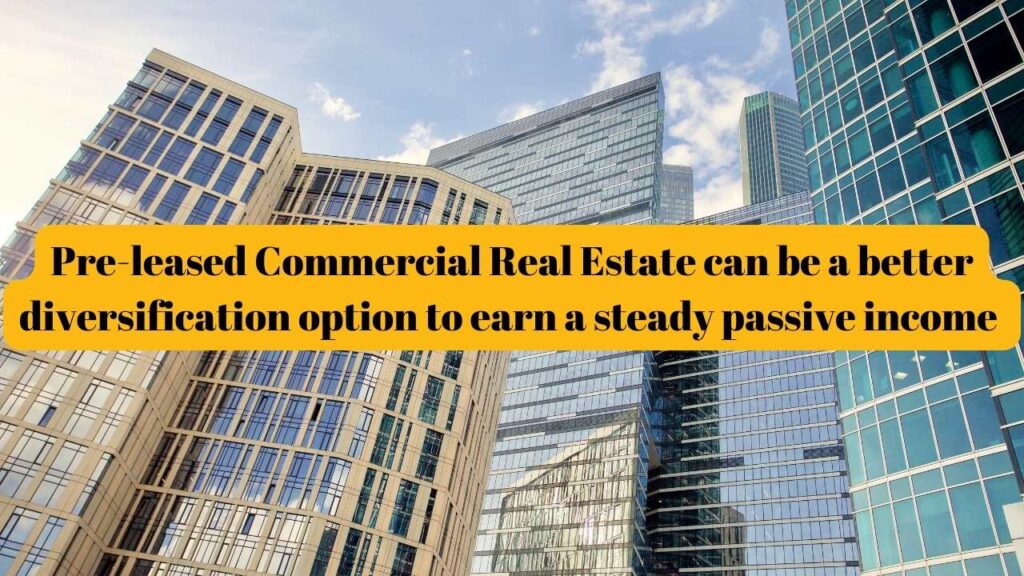Residential vs Commercial CRE? Which is More Beneficial?
Introduction
For many years, real estate investing has been seen as a successful option for people looking for financial stability. Residential and commercial properties are the two main categories of real estate that are offered for sale. Despite their obvious advantages, it’s critical to examine the differences between the two industries and the possible benefits each one offers. This in-depth article will explore residential vs commercial real estate markets, with a particular emphasis on vacation rentals and other associated subcategories. Readers will have a thorough understanding of the benefits associated with each industry by the end of this study.
Residential Real Estate
The majority of properties in residential real estate are ones intended for habitation, such as single-family homes, apartments, and condominiums. Stability is one of the main benefits of investing in residential real estate. Due to the steady need for housing, potential tenants or buyers are constantly interested in the property. Moreover, residential real estate frequently sees consistent increases in value, offering investors the chance to realize long-term capital gains.
Vacation Rentals
Over the past several years, vacation rentals have seen a boom in popularity within the residential real estate market. Properties that are temporarily rented out to vacationers are known as vacation rentals. Property owners can now easily make money from their vacant residential properties.
Advantages of Residential Real Estate
Prioritize Stability and Long-Term Growth
Long-term stability and value appreciation are two of residential real estate’s main benefits. Unlike other investment options like stocks or bonds, residential real estate usually grows steadily over time. Historically, real estate has appreciated at a rate higher than inflation, protecting homeowners and investors from growing costs. Those who invest in residential real estate can create equity and a strong financial future for themselves.
Generating Rental Income
The possibility of generating rental income makes investing in residential real estate appealing. By investing in real estate in sought-after areas, investors may guarantee a consistent stream of income. A reliable source of passive income to help with costs and mortgage payments can be obtained by renting out a property. Through reinvestment or project funding, these earnings can improve financial independence and stability.
Tax Incentives
Both homeowners and investors can benefit from several tax breaks when they invest in residential real estate. Take into account deducting mortgage interest, real estate taxes, and some property maintenance costs to lower the amount of taxes due. One potential way to improve financial conditions is to eliminate capital gains taxes on the sale of a principal house, provided a cap is reached. Because of the numerous tax incentives, investing in residential vs commercial real estate can result in large financial returns.
Lower Overall Risk
By diversifying an investment portfolio, adding residential real estate can help lower overall risk. Conventional financial instruments, such as bonds and stocks, usually do not follow changes in the value of real estate. Investing in residential homes can increase portfolio stability and balance by reducing market volatility. Diversification across a variety of asset types is essential for the long-term growth and maintenance of wealth.
Enhancing Value
There are opportunities to appreciate and enhance value in residential real estate. Building upgrades and renovations done with purpose can increase an investor’s equity and possible rental income. Improving exterior appeal, bathrooms, or kitchens can increase home prices and draw in high-paying tenants. By investigating options that increase value, investors can make the most of their profits and make the most use of their assets.
Emotional Benefits
Having a home in residential real estate has emotional benefits in addition to financial ones. Having a home makes one feel stable, secure, and proud. It enables people to make a name for themselves, engage with the community, and construct a home of their own. Not only can residential real estate be customized to fit individual tastes, but it also promotes individuality and self-expression.
Commercial Real Estate (CRE)
Commercial real estate is defined as a property used for business purposes, such as office buildings, retail establishments, industrial warehouses, and hotels. Investing in commercial real estate has many benefits over residential real estate when it comes to the real estate market.
Commercial Real Estate’s Advantages
More Rental Income
The potential for more rental income is one benefit of commercial real estate over residential ones. Businesses and groups who rent commercial space frequently have to sign lengthier leases and pay more each month. A business property’s income stream may increase if it has several tenants. The increase in rental income supports improved financial stability and growth by giving investors a steady source of passive income.
Rising Value Over Time
Both residential and commercial real estate have the potential to appreciate over time. The value of well-kept commercial real estate in a desirable location frequently rises over time, surpassing inflation. When companies prosper, and the need for first-rate office space rises, real estate values may rise noticeably. Building equity and creating long-term wealth are made possible by this appreciation.
Lowers Overall Investment Risk
Because commercial real estate investing offers advantages in diversity, it lowers overall investment risk. The low correlation of commercial buildings with traditional financial assets like stocks and bonds makes them an excellent addition to an investing portfolio. In the end, this diversity lowers market volatility by ensuring a more steady and well-balanced portfolio. Investing in a variety of asset classes, including commercial real estate, can help investors diversify their holdings and increase portfolio stability.
Strategic Asset Management
There are lots of ways to make investments in commercial real estate more valuable. Unlike residential properties, which are mostly influenced by amenities and location, commercial buildings can profit greatly from strategic asset management and improvements. Through commercial property flipping, renovating, or rebranding, investors can raise rental rates and draw in better tenants. Furthermore, it is possible to increase the property’s value by employing economical tactics, obtaining advantageous leasing terms, and streamlining lease agreements. Investors can increase profits and make the most of their assets by employing these strategies.
Professional Networking Opportunities
Investors in commercial real estate have access to a variety of professional networking opportunities. Professionals, entrepreneurs, and experienced business owners frequently choose to work in commercial buildings. Building connections within this network may result in partnerships, joint ventures, and commercial opportunities. In addition to fostering personal development, these relationships may lead to new financial opportunities.
Tax Benefits
There are several tax benefits associated with commercial real estate, which can greatly increase investment profits. Investors can lower their overall tax obligation by writing off costs related to upkeep, repairs, and property management. Using the tax benefits of depreciating business property is one strategy to lower taxable income. Commercial real estate investing is a tax-efficient investment due to its tax benefits.
Various Real Estate Types
A variety of different properties, apart from residential and commercial real estate, could be of interest to investors, such as:
Industrial Real Estate
This group includes manufacturing areas, warehouses, and factories. Industrial real estate is available for extended-term leases, which guarantee a consistent cash flow.
Retail Real Estate
Retail real estate comprises malls, individual stores, and shopping complexes. Profiting from customer buying patterns and brand awareness is possible when investing in retail real estate.
Mixed-Use Developments
Within a single complex, these real estate forms house residential, business, and occasionally recreational spaces. Because mixed-use buildings offer a variety of income streams, they draw a wide range of tenants.
Conclusion
Investing in residential vs commercial real estate can yield substantial returns for investors. In addition to security and appreciation potential, residential real estate offers the chance to start a vacation rental business. Longer lease terms, higher rental revenue, and diversification are advantages of commercial buildings. An investor can increase the value of their portfolio by investigating other real estate categories such as mixed-use, retail, and industrial developments.
Ultimately, selecting residential vs commercial real estate investments comes down to personal objectives, risk tolerance, and available funds. Before making any financial decisions, it’s important to think about personal preferences, consult an expert, and do extensive study. Comprehending the advantages linked with every sector will assist investors in making well-informed choices that correspond with their long-term financial goals.
Visit BHIVE Properties to know more!






No comment yet, add your voice below!